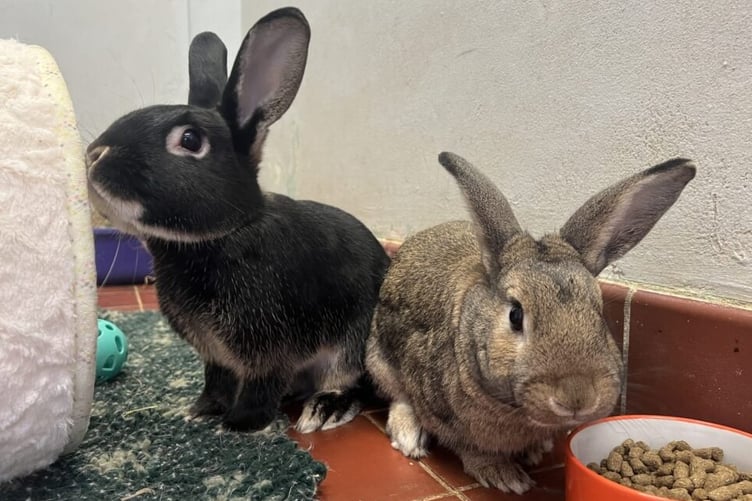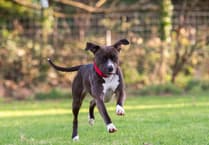As prey animals rabbits naturally live in large groups (called warrens) and need company to feel safe, and so they should always be kept in pairs.
A well-bonded pair of rabbits that have enough space will play together and groom each other, and watching them interact is one of the main pleasures of rabbit ownership.
They need to be neutered, though, to avoid fighting between same-sex pairs or unwanted litters between bucks and does.
All of the rabbits rehomed by the Manx SPCA are neutered, microchipped and vaccinated against myxomatosis (prevalent in the wild rabbit population) and Rabbit Haemorrhagic Disease (RHD) which is highly contagious and spread by wild or domestic rabbit contact, insect bites or bird faeces.
The small animals team frequently assists adopters with the rabbit bonding process by introducing an owner’s existing rabbit to a MSPCA one in the pens at Ard Jerkyll.
The rabbits are placed into adjoining pens to begin with for a day or so, and then they meet each other for the first time in ‘neutral territory’ for short periods of time, building up to longer spells together.
The pair are given up to two weeks to bond in this way, and because the process is such a gradual one there is a high success rate. This is a service that we provide free of charge to rabbit adopters, so that we can give the adoption process the best chance of succeeding.
Keeping rabbits and guinea pigs together was once a common occurrence. Although they are sociable creatures, they should not be kept together because their respective diets are different and potentially harmful to another species. And what about keeping rabbits with cats and dogs?
This needs careful management because most cats and dogs will instinctively see rabbits as potential prey. The experienced staff in our small animals unit are more than happy to give bespoke advice to potential rabbit adopters, and they all have experience of multi-pet households.
Rabbits are highly intelligent, inquisitive animals with their own, unique personalities – they can be taught to respond to simple commands, and they’re easy to litter train. They typically live for 10 to 12 years, and so they are a long-term commitment.
An owner needs to ensure that they have the time and resources to provide the correct environment and enrichment for their rabbits – being locked in a hutch all day is not appropriate.
Rabbits should have a secure run that enables them to hop, run, dig and stretch; and at night they need to be kept in a secure place that keeps them safe from pole cats and other predators.
Rabbits have an unusual digestive system – food is passed through their gut and produces special droppings called caecotrophs which are a darker colour than their normal droppings.
Rabbits eat these caecotrophs allowing any remaining nutrients to be ingested.
Because rabbits trickle graze, spending up to 70 per cent of their time eating, they need a constant supply of fresh hay and/or grass to keep their digestive systems healthy.
Eating an appropriate diet also helps to wear down a rabbit’s front teeth which grow at a rate of 3mm a week – they never stop growing.
We have several pairs of rabbits looking for new homes, including Peanut (brown) and Cinnabun (black and tan). They are a one-year-old male and female sibling pair, whose previous owner developed allergies and simply couldn’t keep them.
They are very playful and friendly and they enjoy human company, and they like nothing more than to have lots of space to show off their binkies – a sign of joy and excitement, a binkie is when a rabbit jumps into the air, twists their body and flicks their feet.
If you would like to meet Peanut and Cinnabun with a view to rehoming them, please contact the small animals team on 851672, option 3.




